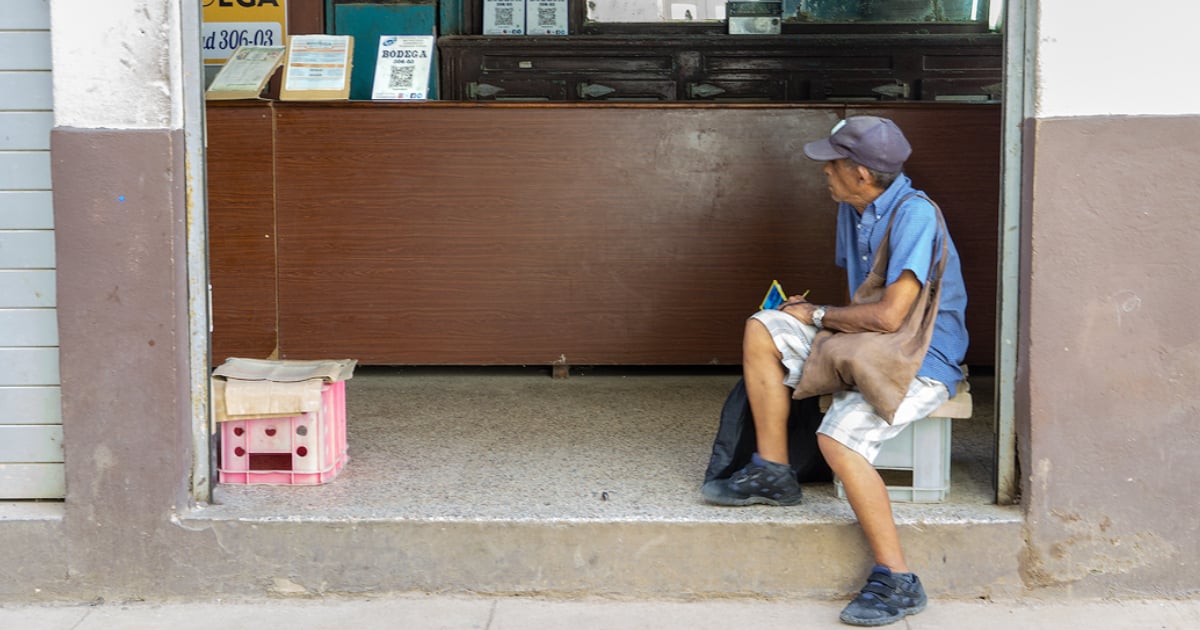
39% of Cuban retirees receive the minimum pension. The figure itself sounds bad, but when the percentages are converted to numbers, it sounds even worse. Of the 1.7 million beneficiaries of Social Security (including pensions, maternity protection, and people with partial disability), four out of ten retirees receive 1,528 pesos per month (between 4.50 euros and 4.70 dollars, at this week’s informal exchange rate).
To put it clearly: a minimum wage in Cuba (2,100 pesos) equaled two kilograms of chicken last May. A pensioner could not buy even one kilogram of powdered milk with their salary, which cost 1,800 pesos five months ago. The direct consequence is that more and more elderly people can be seen on the streets of Havana rummaging through the trash and gathering raw materials to collect a bit of money to make ends meet.
The number of retirees receiving the minimum pension has been confirmed to the state press by Virginia Marlene García Reyes, the general director of Social Security at the Ministry of Labor and Social Security. As she explains in statements to Cubadebate, the state allocates 40 million pesos for pension payments amid inflation, which resisted dropping below 30% in 2023.
It is precisely the pensioners who have expressed serious concerns after the government of Miguel Díaz-Canel announced in September the disappearance of the National Institute of Social Security, under the pretext that this service will be decentralized to transfer responsibilities to municipalities and provinces.
The official discourse claims that this is done with the intention of "lightening the state apparatus," but in practice, the hot potato is shifted to the territories, since at least that 39% of Cuban pensioners with minimum income have all the tickets to add to the list of people at risk of extreme poverty.
The situation is especially complicated for those who do not have family abroad to send them dollars to access a balanced diet in the final stretch of their lives. They depend exclusively on what arrives at the store. In this month of October, there is neither coffee, nor oil, nor beans, nor toothpaste. The official press itself describes the situation of the distribution of state-subsidized food as "a complex panorama."
Even so, the official discourse reiterates, now with not a shred of collective credibility, that "this measure does not imply leaving the population unprotected," under the pretext that Social Security is a "conquest" they want to preserve, although no measures have been taken in this regard at the moment. The Director General of Social Security euphemistically states, "We are working to improve this situation, although current circumstances do not allow for immediate changes," acknowledging this without providing details about what she means when she claims they are working on it.
And in the line of passing the hot potato to the territories, the official assures that anyone facing economic problems due to insufficient income, such as that 39% of retirees who receive 1,528 pesos a month, can go to the labor offices to request assistance, which will be granted after an investigation of each case, she adds without clarifying what requirements must be met to receive that subsidy, in a country where 89% of the population is in a situation of extreme poverty.
Minimum wage set at the end of 2020.
In December 2020, the Cuban government set the minimum wage at 2,100 Cuban pesos (CUP), about $87 at the expected exchange rate of 24x1, while pensions were reported to range between 1,528 ($64) and 1,733 CUP ($72), according to a resolution from the Ministry of Labor and Social Security (MTSS) published in the Official Gazette.
At that moment, CiberCuba warned that the impact of the measure for citizens would depend on the levels of inflation during the monetary unification process, which has been disastrous. In fact, Díaz-Canel himself has acknowledged that he intends to "rectify the reordering."
The modification of the method for calculating the amount of pensions for age and total disability decreed by the Cuban government has since generated doubts and discomfort among retirees and pensioners, who denounce the precariousness in which the government has left them, which has found a solution: for retirees to return to work. To this end, an update of the Social Security Law was approved, allowing pensioners to rejoin the workforce and receive both the pension and the salary from the position held.
The regime itself acknowledged last June that inflation is out of control and that the economic situation "continues to be very tense," as "prices continue to rise, although at a slower pace." The agony continues.
What do you think?
COMMENTFiled under: